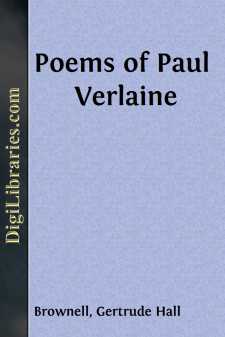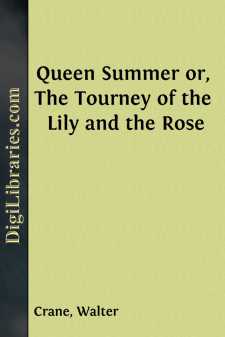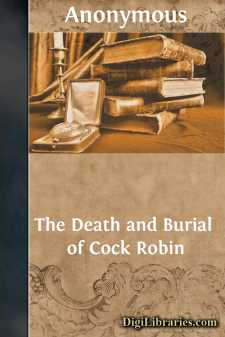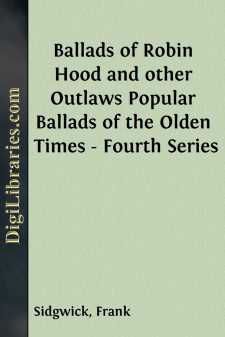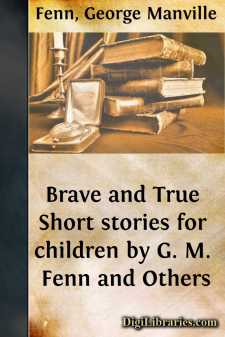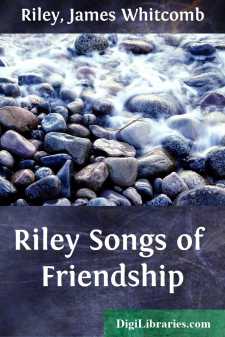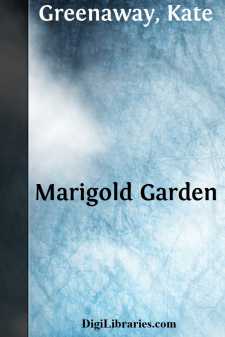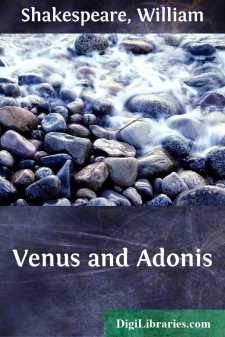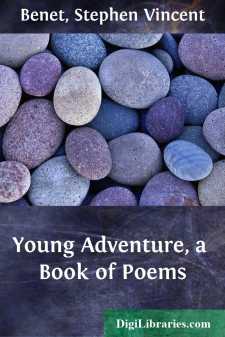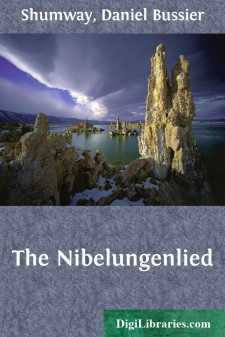Poetry Books
Sort by:
CLAIR DE LUNE. Your soul is as a moonlit landscape fair,Peopled with maskers delicate and dim,That play on lutes and dance and have an airOf being sad in their fantastic trim. The while they celebrate in minor strainTriumphant love, effective enterprise,They have an air of knowing all is vain,—And through the quiet moonlight their songs rise, The melancholy moonlight, sweet and lone,That makes to...
more...
by:
Walter Crane
Queen Summeror the Tourneyof the Lily & the Rosepenned & portrayedby Walter Crane When Summer on the earth was queenShe held her court in gardens greenFair hung with tapestry of leaves,Where threads of gold the sun enweavesWith checquered patterns on the floorOf velvet lawns the scythe smoothes o’er:Their waving fans the soft winds spreadEach way to cool Queen Summer’s head:The woodland...
more...
by:
Anonymous
THE BURIAL OF COCK ROBIN. Here lies Cock Robin,Dead and cold;This book his endWill soon unfold. Who kill'd Cock Robin?I, said the Sparrow,With my bow and arrow,And I kill'd Cock Robin. This is the Sparrow,With his bow and arrow. Who saw him die?I, said the fly,With my little eye,And I saw him die. This is the Fly,With his little eye. Who caught his blood?I, said the Fish,With my little...
more...
by:
Frank Sidgwick
PREFACE This volume concludes the series, begun in 1903, which was intended to comprise all the best traditional ballads of England and Scotland. The scheme of classification by subject-matter, arbitrary and haphazard as it may seem to be at one point or another, has, I think, proved more satisfactory than could have been anticipated; and in the end I have omitted no ballad without due justification....
more...
Brave and True, by E Dawson. “But I say, Martin, tell us about it! My pater wrote to me that you’d done no end of heroic things, and saved Bullace senior from being killed. His pater told him, so I know it’s all right. But wasn’t it a joke you two should be on the same ship?” Martin looked up at his old schoolfellow. He had suddenly become a person of importance in the well-known old haunts...
more...
BACK FROM TOWN Old friends allus is the best,Halest-like and heartiest:Knowed us first, and don't allowWe're so blame much better now!They was standin' at the barsWhen we grabbed "the kivvered kyars"And lit out fer town, to makeMoney—and that old mistake! We thought then the world we wentInto beat "The Settlement,"And the friends 'at we'd make thereWould beat...
more...
by:
Kate Greenaway
SUSAN BLUE. Oh, Susan Blue, How do you do? Please may I go for a walk with you? Where shall we go? Oh, I know— Down in the meadow where the cowslips grow![5] Little Blue Shoes Mustn't go Very far alone, you know Else she'll fall down, Or, lose her way; Fancy—what Would mamma say? Better put her little hand Under sister's wise command. When she's a little older grown Blue Shoes...
more...
VENUS AND ADONIS EVEN as the sun with purple-colour'd faceHad ta'en his last leave of the weeping morn,Rose-cheek'd Adonis tried him to the chase;Hunting he lov'd, but love he laugh'd to scorn; 4Sick-thoughted Venus makes amain unto him,And like a bold-fac'd suitor 'gins to woo him. 'Thrice fairer than myself,' thus she began,'The field's chief...
more...
In these days when the old civilisation is crumbling beneath our feet, the thought of poetry crosses the mind like the dear memory of things that have long since passed away. In our passionate desire for the new era, it is difficult to refrain oneself from the commonplace practice of speculating on the effects of warfare and of prophesying all manner of novel rebirths. But it may be well for us to...
more...
THE NIBELUNGENLIED (1) ADVENTURE I (2) Full many a wonder is told us in stories old, of heroes worthy of praise, of hardships dire, of joy and feasting, of the fighting of bold warriors, of weeping and of wailing; now ye may hear wonders told. In Burgundy there grew so noble a maid that in all the lands none fairer might there be. Kriemhild (3) was she called; a comely woman she became, for whose sake...
more...


